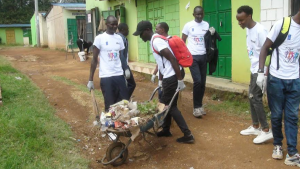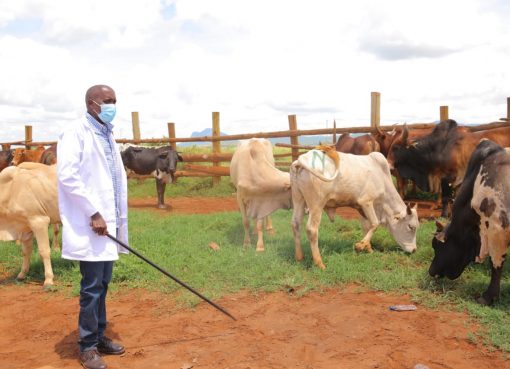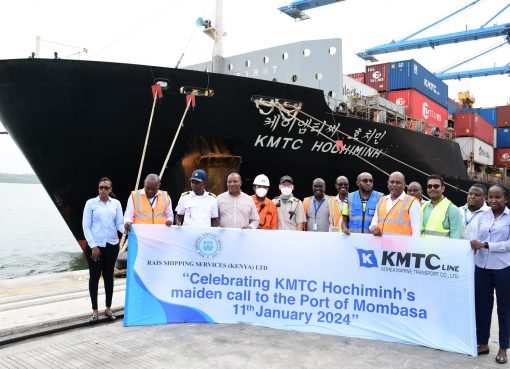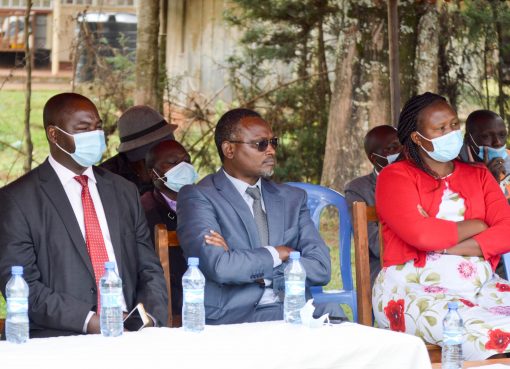In the days of our fore fathers, as African communities, every adult was viewed as a parent by youngsters. And the adults took the responsibility to guide the children to live a moral life. They took time to correct any of the children when they erred, because children belonged to the society in the African culture.
Children instinctively respected the old regardless of whether one was a biological parent or not. Those were the days when a child would see an elder tired from riding, run and grab the elder’s bicycle to help steer and park it at the right place, with the elder pleasantly accepting the offer of help, and without suspicion that the child might steal the bicycle, because that was unheard of. It was also a time when children would quickly stand and respectively greet any elderly person meeting them or passing by. A time when, if there was limited sitting space, in a house, any gathering or transport facilities like buses, children would without question stand from their seats to allow an arriving elder to sit.
Parents had all the latitude to punish any child that went against the community’s cultural norm by delving into unnecessary bulling of colleagues, destroying property, stealing, abusing and failing to honour assigned duties by the elderly.
Conversely today, all these are bygone cultural rules and anybody can attest that what is happening among the current generation of the young people is a gaping contrast of what our forefathers preached against – Lack of discipline.
It is a time when children have totally taken the route of rebellion and going against their parents’ and church’s advice. The trajectory taken by the youth is despicable and can only be reverted by joint societal teachings of better morals to the young.
“We are sitting on a time bomb and if not defused urgently, our children are going to turn into untamed beasts to the detriment of peaceful life within the next generation,” warns Pastor Jack Oyungu of the Voice of Hope Seventh Day Adventist Church in Uriri Constituency.
The man of God, during a sermon he gave at the Church recently, called for the urgency on the part of parents to always use the bible to teach their children God’s commandments with a view to helping them live an upright life rather than living them to lead a violent life in the society.
“It is to everyone’s knowledge that the society is currently experiencing lots of broken marriages among the youth because of the competition on who is the head of the house.
“The wife does not want to accept that her husband is the head of the unit while the man sticks to ego -man’s chauvinism, leading to unending domestic wars,” he remarked.
Mr. Peter Gwengi, Executive Director of Lake Victoria Initiatives (Lavin), an organisation that supports people infected and affected by HIV/AIDS, is blaming the onset of social media and adoption of foreign culture by the young generation as the cause of the breakage of the Africa cultural fabrics that has thrown our society into a big problem with the youth.
“It is lack of respect from our children today to have the audacity of drawing a caricature of our president put in a coffin or being buried. It is bad behaviour on the part of the young to show disrespect of any nature to any elderly person even if they have divergent opinion on any matter,” says Gwengi.

Photo by Polycarp Ochieng.
He echoes President William Ruto’s recent appeal to parents to raise their children as morally upright in order for them to guard against crossing the red-line between them and the aging generations. “Respect is earned either way and parents in conjunction with the Church must work overtime to show the youth the right direction to take while living in the society,” concluded the Lavin boss.
But, speaking on the ongoing abductions of the Kenyan children allegedly by the state, Mrs Jane Owino a business lady, notes that it requires soberness between the Kenyans accusing the government of running abductions and the perpetrators of the vice.
While abduction and torturing is not the best way to treat critics of governments, on the other hand it is wrong and lack of discipline for the Gen Zs to use the existing social media platforms to spread malicious information and tarnish the images of perceived enemies.
“We all know that our youth are angered by the current state of unemployment in the country, the hard economic situation they wallow in and other bad forms of governance run in the country. But this does not give any one leverages to use the social media badly to attack the authority at will,” stressed Mrs Owino, a retired civil servant.
She says that there is a way a country can tone down the anger of the youth without pricking their nerves to pick unnecessary battles with leaders. First, the state must find a way of initiating income generating activities for the many unemployed youth and you would have appeased their rage.
Thanks to Migori County that is fast moving towards this course by engaging its young people in meaningful and gainful activities that include sporting among others. The effort is bearing fruits in terms of growing discipline and respect for the people, besides gaining income.
Before this, the majority of youth within the county had been at the focal point of violence, theft, drinking spree and drug substance abuse, among other non-productive activities.
The County had for a long time been ranked among the front-runner counties deemed as hot spot zones for violence, especially during the electioneering periods, with its youth playing major roles in property destructions and killings.
The positive trajectory can partly be credited to an organisation called the Inter-Religious Council of Kenya (IRCK). When this group extended its youth programme to Migori County in 2021, several of the young people in the area were already known to be lost in the shackles of despair.
In one of its bids to bring harmony, peace and tranquility among the youth who had far mostly been affected by political temperatures, the IRCK intervened by extending its youth wing to the county to engage youths during, before and after the 2022 elections.
Dubbed Migori Interfaith Youth Network, under the IRCK umbrella, the new movement delved in bringing together the young from different religious backgrounds with a common goal of changing the negative brand that the youth of Migori County bore.
IRCK is a coalition of all major faith communities in Kenya that works together to initiate and promote inter-faith dialogues and collaborations among members for a common endeavour to mobilise the unique moral and social resources of religious people and address shared concerns
And to realise that dream in Migori, the body has been very active in offering training and giving different perspective approaches to the youthful generation while restoring their hope of being productive people in society.
Tragedies that the young population face at the moment have driven them to suffer mental illnesses such as depression, hopelessness, indiscipline, non-productivity and rising crime rates associated with youths, a problem that is fast taking sharp increase trend in the region
Although the government has come up with various initiatives to address youth agenda, especially on employment, much is still needed to save the generation from long-lost hope and bad moral.
Initiatives such as Ajira digital, Uwezo funds, Kenya Youth Employment Opportunities Program (KYEOP) and the now defunct Kazi Mtaani are some of the pragmatic measures the state has deployed across the country aimed at changing the lives of the youth in Kenya.
Nevertheless, the interventions have borne minimum fruits as frustrations over bureaucracy have taken the center stage.
A dimming light of hope has steadily whirled among the youths but thanks to IRCK that came up with a strong youth programme in the county in July 2022, that is successfully infusing back a ray of hope to the youngsters.
Bringing these young people together to work on a common goal of restoring lost hope has been given first priority, while the focus on building a peaceful correlation with the society has gone a notch higher.
Among the activities given top priority in this effort have been ball game competitions, community service work, which include volunteer cleaning of urban settlements and talent search competitions.
The rewards of such competitions – balls, uniforms and training kits – have led to formation of a junior football club at Oruba settlement within Migori town, an area which has been on the radar of security officials for long with a view to wiping-out criminal activities in the area.
Rodger Otieno, a youth coach of the new Balaina FC, says that it is through such activities that they have ³managed to form a club from among themselves.
Otieno states that they have had desires to form a football club, but due to lack of equipment and a common platform to bring the youth together, it has never been easy.
“In my area, we have a new football club called Balaina FC. It is only through the youth network that we have managed to get together,” says Otieno, adding:
“Initially, youths would come and go because we did not even have a single ball for training,” he said.
Otieno notes that, at first, the youths in the area were scared of converging as they would be seen a security threat. But the intervention of the interfaith youth network has helped in achieving their common interest.
The interfaith youth network has also given the youth a sense of responsibility through which they conducted communal service by cleaning the streets of Migori town and its surroundings.
Through such initiatives, more youths have been recruited in the drive which incorporates the local administration headed by Migori County police commander.
In a candid interview with KNA, a senior police officer who did not want his name mentioned, noted that when they got an invitation recently to join youths in an activity in Migori town, he was curious to know what agenda they hand especially after having violent confrontations with his officers in the past days.
“I was curious to know what the youth had this time. The Migori youth I knew was not the one that could invite the police for communal service,” he remarked.
“However, I was pleased with how organised they were and how peaceful they conducted themselves with ease. I admit it was one of the best moments in my job.” he added.
In this arrangement, the police have also taken the opportunity to engage the youth in sensitization talks on the importance of maintaining peace at all times, especially during the electioneering periods.
Taking part in youth activities has helped bridge the relation gaps between the security and the youth which has enhanced information sharing from the community. The youth have also been encouraged to be honest in their deeds and also to report any harassment subjected to them by the police unlawfully.
The IRCK intervention through the interfaith youth network has also provided a platform for exposure to the youth through seminars, which allows them to meet different people and have a new perspective on life approaches.
The chairman of the Migori interfaith youth network, Mr. Austin Okello, says that the Kenyan youth live below the poverty level, despite enduring hardships while seeking education to get better jobs. However, they still need a firm foundation for discipline and high morals to live well in the society.
IRCK has so far succeeded in bringing youths together for a common goal of peace and tranquility in the county as well as create an environment where the youngsters can do business and earn income, he disclosed during an interview with him.
In addition, the majority of the youth have found purpose in life and diverted their attention from depending on politicians and other non-productive activities.
Migori County IRCK coordinator Bishop Charles Otigo, states that he could not be more pleased by the small gains realised over a short period.
“As a church we always wanted the youth to be productive members of society, but this was not easy since the majority were lost in crime, drug substance abuses and also taken sides with politicians, who use them for their self-interest,” said the bishop.
Concurrently, crime rates have drastically reduced as sanity is slowly but steadily crawling back into our society.
By George Agimba





